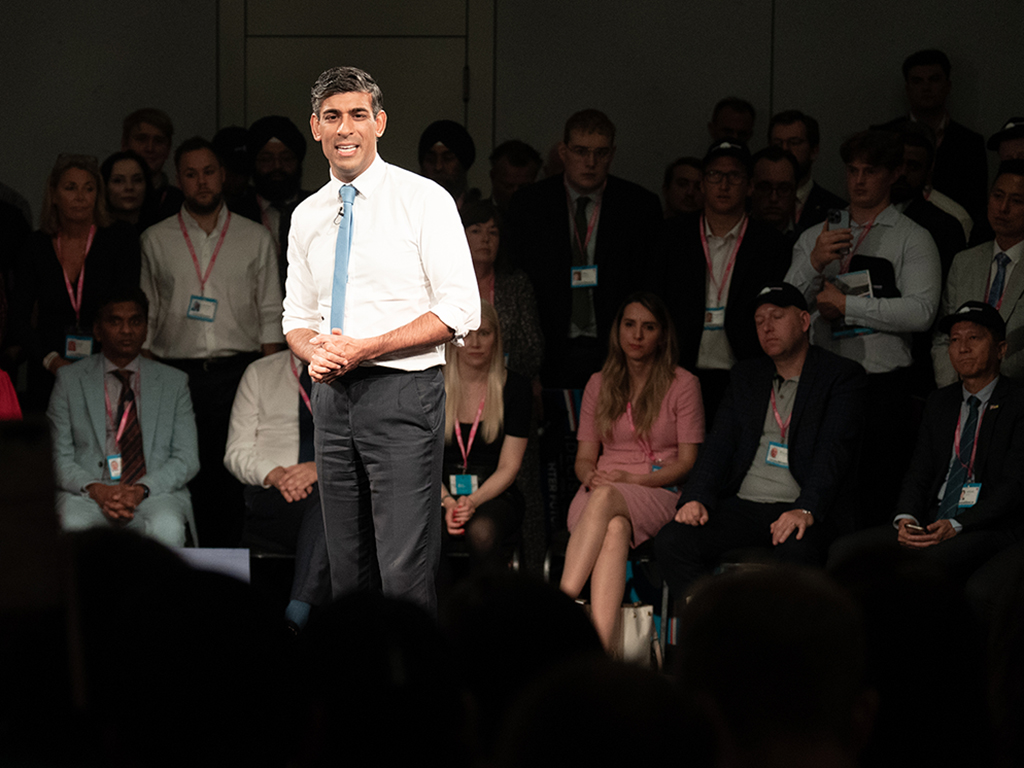
In 2019 the Conservatives won their biggest election majority since 1987 with a promise to “level up” the country. After decades in which governments of both main parties had lavished infrastructure projects on London and neglected the north of England and the Midlands, the Tories vowed that this time would be different.
Yet, far from advancing, the Conservatives are regressing. Almost 14 years have passed since Gordon Brown first announced plans for a north-south high-speed rail network (HS2). Since then, four successive Conservative prime ministers have endorsed the project.
But Rishi Sunak, who reaffirmed his commitment to “levelling up” after becoming prime minister a year ago, has now broken this rare consensus. The Prime Minister was expected to use his Conservative conference speech to confirm the cancellation of the northern leg of HS2. That he planned to make this announcement in Manchester – where the new line was due to terminate – combines farce with tragedy.
In some respects, Mr Sunak’s decision is unsurprising. The initial cost of HS2 was projected at £37.5bn in 2009 but is now estimated to be more than £100bn. Since its conception, the Covid pandemic, the energy price spike and Brexit have compounded the economic pressure on the state.
The government had already reduced HS2 by dropping the eastern leg from Birmingham to Leeds in November 2021. The project is popular with technocrats and policy wonks, but, on the whole, unloved by the public. A poll by Redfield & Wilton found that 40 per cent support the cancellation of the northern link, compared to 24 per cent who oppose it.
But the case for HS2 remains robust. At present, the United Kingdom is the slow man of Europe: just 0.7 per cent (113km) of the 16,346km of railway line in use in Britain is high-speed, compared to 22.2 per cent in Spain, 10 per cent in France and 5.5 per cent in Italy. Once HS2 was complete, a journey from London to Manchester would have been cut from more than two hours to just over one hour; a train journey to Scotland would take an hour less.
Yet the overriding justification for HS2 owes less to speed than to capacity. In recent decades, rail usage has grown rapidly: the number of journeys doubled between the early 1990s and 2019 to more than 1.7 billion annually. But new passengers have not been matched by new lines. On Britain’s Victoria-era railways, track use is around 60 per cent higher than the EU average and congestion is responsible for an estimated 70 per cent of delays.
Passenger numbers inevitably plummeted during the Covid lockdowns but have since surged. In August, daily rail use ranged from 93 per cent to 102 per cent of its pre-pandemic level. If HS2 is not built in full, Britain’s existing capacity problem will only intensify, leading to even higher fares and slower journeys.
Mr Sunak is expected to pledge that “every penny” saved from not progressing with the northern leg of HS2 will be spent on regional road and rail schemes. But though there is an overwhelming case for a new TransPennine line to connect Liverpool, Manchester and Leeds, “HS3” is dependent on the capacity provided by HS2.
The cost of Mr Sunak’s retreat will not only be borne by the railways. Britain’s chronic short-termism and dearth of industrial strategy is once again exposed. In the UK’s investment-averse culture, future governments will be even more reluctant to commit to new projects for fear their successors will discard them. As even Boris Johnson recently observed: “It is no wonder that Chinese universities teach the constant cancellation of UK infrastructure as an example of what is wrong with democracy.”
Infrastructure projects are too often over-budget and behind schedule but once they are delivered – the Channel Tunnel, the Olympic Park in London, the Elizabeth Line (the Crossrail project) in the south-east – objections are forgotten. Britain needs a sense of mission to boost economic productivity, narrow regional inequalities and banish a corrosive sense of national decline.
Mr Sunak, a small-state free-marketeer, has none of the ambition that drove Gaullist Conservatives such as Michael Heseltine. The cancellation of a train line a decade in the making is a fitting epitaph for a directionless and marooned government.
[See also: The New Statesman’s right power list]
This article appears in the 04 Oct 2023 issue of the New Statesman, Labour in Power





